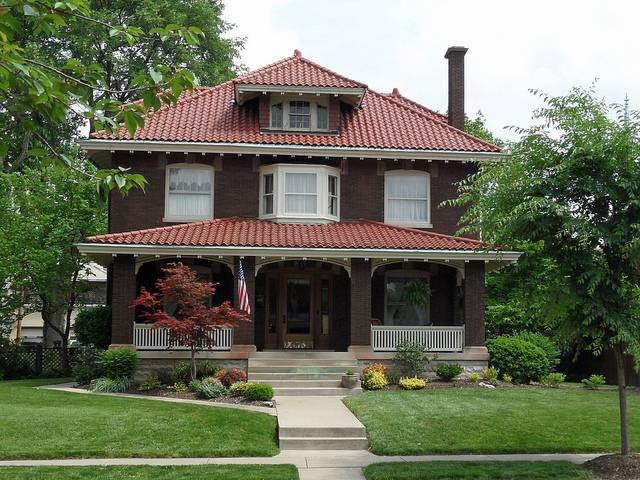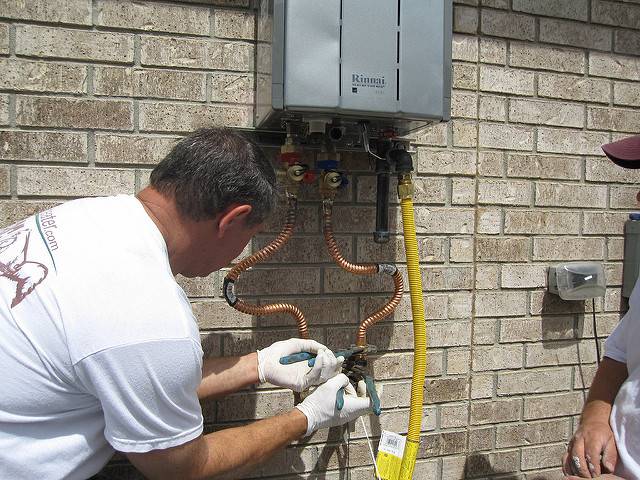
The real estate industry has seen an impressive development over the past few years, thanks to the growing number of prospective homeowners. Today, you can find all sorts of investment properties to purchase, whether it’s vacant land, a commercial structure, or a residential building.
One thing about many of these for-sale properties, however, is that they may seem impressive from the outside, but the interior is wanting. For instance, there are those that might require repairs or termite treatment before you can move in, which could easily hurt your budget.
That’s not to say every stunning building has a set of hidden issues, but it’s better to be sure before investing your hard-earned money. So, what are some of the things to check keenly in an investment property before accepting your next deal? Read on to learn more.
- Pest inspection
 Pests can be quite destructive to structures, especially those with several wooden designs. Unfortunately, not every homeowner takes the idea of pest control seriously, which is why you should prioritize it in your home inspection process.
Pests can be quite destructive to structures, especially those with several wooden designs. Unfortunately, not every homeowner takes the idea of pest control seriously, which is why you should prioritize it in your home inspection process.
Of course, it’s almost impossible to determine such issues with your naked eye. As such, it’d be prudent to hire a professional expert to carry out the inspection in all the rooms. After the process, they’ll give you a full report and whether there are any signs of a future pest infestation.
You might be wondering how such an inspection will be beneficial to you. Well, for one, it’ll save you any future regrets. It can be quite frustrating to move into a house only to realize later that it’s infested with termites and other creepy crawlies.
Another advantage is the fact that it helps in uncovering any other hidden issues. For instance, pests might have messed up with the building’s structural design, which can easily go unnoticed.
With all these in mind, you’ll have the upper hand during negotiations. Of course, the help of a real estate agent might come in handy, especially when trying to estimate the final value of the property.
- Well water
Most residential properties have a private well which is the main source of water within the home. If your target property has this, it’d be wise to have it inspected thoroughly before going ahead with the purchase.
It’s a no-brainer that contaminated water can pose a risk to the health of its users. Well water can be easily polluted depending on its location and the design of its seal. In fact, the latter should be your first warning sign as you commence the inspection process.
Again, it’s important that you hire an expert to test the well water and ascertain the condition of the well itself. Oh, and don’t forget to check the flow rate and pressure.
Drilling a new well can be very expensive. Therefore, you need to be sure that the available one is still useable; otherwise, it could come back to haunt you.
- Plumbing
 Is the plumbing system still in good shape? This is another critical question that will need answers before you can invest your money in any given property. It doesn’t matter if it’s a commercial or residential property; poor plumbing can always lead to a lot of frustrations.
Is the plumbing system still in good shape? This is another critical question that will need answers before you can invest your money in any given property. It doesn’t matter if it’s a commercial or residential property; poor plumbing can always lead to a lot of frustrations.
Claim up to $26,000 per W2 Employee
- Billions of dollars in funding available
- Funds are available to U.S. Businesses NOW
- This is not a loan. These tax credits do not need to be repaid
So, where should you start with the plumbing inspection? The aesthetics can be very appealing to the eye, but that doesn’t guarantee a fully functional plumbing system. Therefore, most of your checks here should focus on the operation rather than the appearance—although that’s another aspect.
One way of inspecting this section of the building is by checking the pressure of water. Hook up a pressure gauge to the hose faucet in one of the rooms and turn it on when the rest of the sections aren’t in use. The recommended pressure is always anywhere between 30 and 80psi. If yours doesn’t meet this threshold, then there must be an issue with the plumbing system.
You can also get a miniature camera and drop it into the sewer line. Inspect for blockages and any noticeable damages along these sections. Remember, failure to carry out such inspections could leave you with repairs amounting to more than USD$5000, depending on the size of the building.
- Beware of any room fresheners
The easiest way to know whether there are some issues within the property is when there is an unpleasant smell. Of course, the sellers already know this and might decide to mask the smell with a room freshener rather than dealing with its root cause. As a buyer, if you’re not careful, the beautiful smell from these fresheners could fool you.
Take, for example, a house that was previously owned by a smoker. Of course, the tobacco odor rarely goes away immediately. If fresheners are used, it might be difficult for you to realize, but once you’ve moved in, it won’t take you long to notice the smell of tobacco. Apart from creating an uncomfortable environment, it could also lead to some health complications.
- Floor condition
Uneven floors may not seem much of an issue at first, but they can be quite frustrating for you as a new homeowner. For instance, if the living room has an uneven floor, it’ll be quite difficult to organize your furniture. For one, you might need to use some supporters to stabilize your tables, seats, TV stand, and other furniture.
So, how can you avoid such an experience? Well, it’s all about how you inspect the house. It’s always recommended that you bring a marble during the inspection and place it around various areas of the floor in every room you visit. This will show you any defects in the floor design.
Keep in mind that this isn’t proof of poor construction, especially if the house is quite old. Some houses can settle aggressively, and this will create a hump in the middle. Without inspection, some owners may not be aware, while others might want to play it down.
However, the fact of the matter is that this could be quite costly. The solution to deflections in floors may demand that you rip out the entire existing floor. In other words, you’ll need to reconstruct the floor from scratch; otherwise, you might have some unpleasant patches all over. Therefore, realizing this before taking the deal can save you a lot of money in the long run.
- Condition of the walls
Another very important factor you should open your eyes to is the condition of the walls. This is something that you can’t run away from because it determines the aesthetics of your home. For instance, no matter how organized your living room is, poorly designed walls will always drag your efforts back.
Some defects like worn-out paints and other naked damages are quite easy to trace. Remember, there is no ‘negligible’ damage when it comes to home inspection. For instance, there could be some stains left behind due to the tobacco residue in case you’re buying from a smoker. The yellowish-brown stains can be quite costly to get rid of as they’ll require a lot of scrubbing and two or more coats of paint. Therefore, be sure to record everything that you think requires attention before you can commence the negotiations.
There are, however, some issues that aren’t easy to notice. For instance, some people conceal water damages by painting over them. In the process, moisture is trapped beneath these paints, which can easily lead to the growth of mold. Black molds, generally, pose a threat to your health when you breathe in that odor.
So, how will you determine such issues? The biggest culprits when it comes to water damages are areas under the drawers, sinks, or beneath the tubs and toilets. In fact, if you come across warped sheetrock, that’s an indication that there might be some leaks, which could also mean that there are some water damages around the area.
Of course, the sellers are always required to disclose this information to their prospective buyers. If you happen to realize these issues during your inspection but aren’t mentioned in the package, then that could say a lot about the seller. In such a scenario, you have all the reasons to back out because you don’t know what else they’re hiding from you. In fact, depending on your state laws, the sellers might be forced to reimburse you any costs incurred during the inspection.
- Are the walls soundproof?
Now that you’re impressed with the condition of the walls, it’s time to find out if they’re soundproof. This is quite important because of many things. For one, you will definitely need your privacy at some point, and when you have friends over or children around, it can be difficult if the walls aren’t soundproof.
Also, if you’re working from home, then we can’t stress how much this aspect is important. You wouldn’t want to be distracted by the noise from the living room while you’re busy with work in your home office. Of course, it can be difficult to tell with empty rooms, but you can still test it by playing music in other rooms while the door to your office is shut.
- Roofing
 This is the first thing that you see the moment you enter that gate. This is a vital part of any home, and its condition should be confirmed before you can sign the deal. There are several things that you’ll need to check.
This is the first thing that you see the moment you enter that gate. This is a vital part of any home, and its condition should be confirmed before you can sign the deal. There are several things that you’ll need to check.
Here is part of the checklist;
- Broken or missing shingles
- Worn out rubber boots supporting the vent pipes
- Damaged or missing chimney cap
- Cracked caulk
These are some of the factors to consider during the inspection. In addition to these, you might also want to check the design and see if it resonates with your needs. Some might be too old for a modern house, which means you’ll be forced to make a few changes—and that’ll be costly. It goes without saying that you’ll need to hire a professional roofing inspector for you to get the best results.
If there are some repairable defects, you can give the current homeowner some time to do the necessary. However, if it needs a lot of redesigning, then be sure to communicate the same and see if you can come to an agreement. Of course, if you don’t find common ground, then it’d be wise to move on to the next candidate.
- Ownership history
 Knowing the condition of the house is one thing, but understanding its ownership history is another. So, why is this aspect vital? Inasmuch as it might not necessarily mean something, a house with high turnover should signal a red flag. Of course, people move out for various reasons, but when you have three people moving out within a space of 10 years, then that says a lot about the home itself and the neighborhood.
Knowing the condition of the house is one thing, but understanding its ownership history is another. So, why is this aspect vital? Inasmuch as it might not necessarily mean something, a house with high turnover should signal a red flag. Of course, people move out for various reasons, but when you have three people moving out within a space of 10 years, then that says a lot about the home itself and the neighborhood.
It’s worth noting that even in areas with the lowest average homeownership length, it’s estimated that most people hold on to their homes for at least eight years. Therefore, if several people are moving out within that period, then that means the house could have some hidden issues.
Unless you can find out these issues from a trustworthy source, it’d be wise to reconsider your options. There are high chances that you might be frustrated and end up listing the house within the first few years. The disadvantage, however, is that this will worsen the ownership history, and you might struggle to find the next buyer.
Conclusion
Many people end up regretting their purchase simply because they didn’t pay enough attention during the property inspection process. It doesn’t matter whether it’s a commercial property or your home. Inspecting it before finalizing the transaction is quite important. Checking the roofing, floors, walls, and plumbing system can save you a lot of money in the long run.
It’s worth noting that some repairs like uneven floors might require a total redesigning, which could be very expensive. Therefore, be sure to consult an expert before moving to the next step to avoid any unnecessary frustrations.
Author Bio
Chad Schultz is a pest control supervisor. He has been in the industry for over 20 years. He shares his pest control expertise with the public by guest posting in various online publications. During his free time, Chad enjoys playing golf, bowling, and watching action movies.



